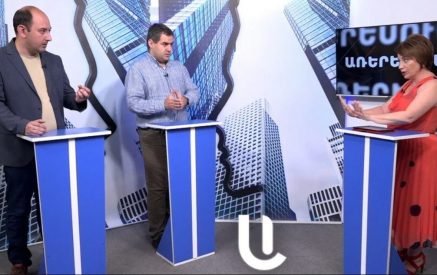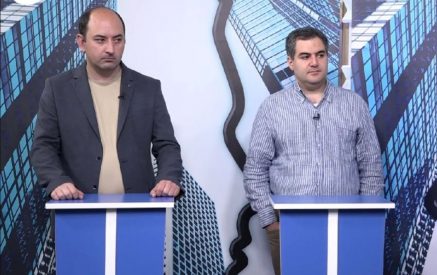The interlocutor of “Aravot” is Hrant Mikayelyan, a senior researcher at the Caucasus Institute, the political scientist.
– Mr. Mikayelyan, the meeting between Stepanakert and Baku was supposed to take place in Bratislava on August 1 with the mediation of the USA, but Azerbaijan refused this meeting. Tigran Petrosyan, Head of the Anti-Crisis Council under the Artsakh president, said that Baku and Moscow propose to hold the meeting in Evlakh. What developments are taking place?
– If we are talking about the Artsakh-Azerbaijan negotiations, we must understand that these negotiations have yet to neither form nor content. Why? Because during any negotiation, it is not the result that is important but the format and agendas. In terms of format, there are several options here. Option one: how do the parties perceive these negotiations? The authorities of Artsakh act as a state, and Aliyev not only does not want to perceive them as a state but even as local authorities, only as representatives of Armenians. And so there is a difference in status here. The second version is related to the purpose. From Aliyev’s point of view, the only thing that should be discussed in these negotiations is that the authorities of Artsakh should immediately declare capitulation, surrender, and Baku should judge them. Aliyev said about it two months ago. And the authorities of Artsakh want to alleviate this current situation. Still, they do not have tools at this negotiation table unless, of course, other players create those tools, starting with Armenia and ending with Russia or the USA. In this case, Azerbaijan’s refusal to negotiate can be understood by knowing the position of Azerbaijan. Although it was not assumed that there would be equal negotiations under the auspices of the USA, there would be negotiations between the parties. Azerbaijan does not accept the authorities of Artsakh as a party.
As for Evlakh, I rule this out as well. If I don’t give another example, by kidnapping Vagif Khachatryan, Azerbaijan has shown that it does not accept that the people of Artsakh have any rights. And the authorities of Artsakh, understanding all that very well, will not go to such negotiations and should not go to such negotiations. Russia’s agenda here is that it is optional how, why, and who; Russia must be in the middle. And since they see in Russia that Azerbaijan does not agree to other conditions than the acceptance of the capitulation of Artsakh on the territory of Azerbaijan, and Russia does not want any political capitalization, they say: Azerbaijan wants that, you come to Evlakh. If Pashinyan recognizes Artsakh as part of Azerbaijan, then Russia will not do anything contrary.
Read also
– The Armenian authorities declare that the Stepanakert-Baku dialogue is essential and that it should take place under international mechanisms and guarantees. You do not see opportunities for discussion; what should be done in this situation?
– One thing is obvious, which even Pashinyan talks about, and that is that Azerbaijan has no desire for peace. That country aspires not only to war but even to genocide, and not only to Artsakh Armenians. Expectations that any peace can be established here are empty and meaningless. The Azerbaijani press, public sphere, and social networks are filled with Nazi propaganda, and generations have already been defiled. I want us to clearly understand that Turkey created Azerbaijan as an anti-Armenian tool and will continue to be so. Armenia will never have peace with Azerbaijan. Of course, this is not a desirable reality, but this is the reality in which we live.
– And under these conditions, what should we do?
– Only prepare for war. Prepare intensively, actively, and very seriously deal with the staff. Of course, all that will not happen without a change of government; we must emphasize this because it is meaningless to expect the current government to do anything in that direction. In addition, the border infrastructure and the management of the troops should be improved. Diplomacy should be improved because the possibilities are much broader than these authorities use. We often hear from different colleagues that this is the position of Pashinyan. For example, when Pashinyan talked about lowering the bar on the issue of Artsakh, indirectly blaming the Europeans, I verified this from several sources, and I understood that there was no such pressure from there. But he is trying to get such guidelines to present later that we should agree to the Azerbaijani conditions. It proves that Pashinyan is more inclined to express an Azeri position than a pro-Armenian one. And, unfortunately, he does it very skillfully. There will never be peace with Azerbaijan because even in kindergarten, they raise children in an atmosphere of hatred towards Armenians. And the hatred towards Armenians has only increased after 2020. The healing power for Azerbaijan will be only their defeats and the victories of the Armenian side. That will be difficult and expensive, but there is no alternative. The alternative is genocide, first in Artsakh, then in Syunik, then everywhere.
Rosa HOVHANNISYAN



























































